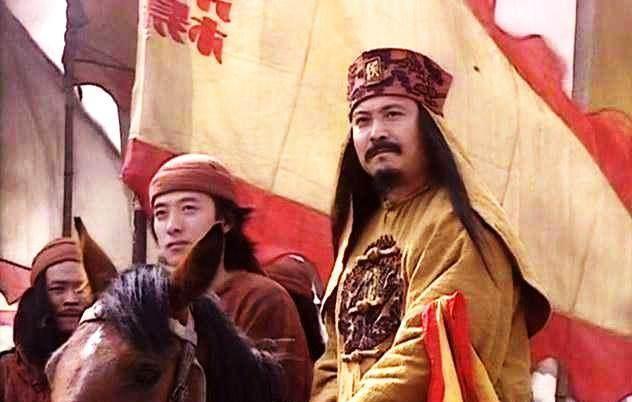The Taiping Rebellion was the last peasant uprising in ancient Chinese history, in fact, throughout the five thousand years of China, once the peasant uprising was suppressed, that is, when the uprising failed, its outcome would certainly not be good, and the same was true of the Taiping Heavenly Kingdom.

From the unstoppable force at the beginning of the uprising to the peak of the occupation of Nanjing, the Taiping Heavenly Kingdom came to an end after only 13 years of establishment. The original Taiping Heavenly Kingdom even became people's hope for a time, and even Marx and Engels felt that this would be the best and most successful experiment of socialism. However, the Taiping Heavenly Kingdom did not develop in a good direction, and the Taiping Heavenly Kingdom 13 years later was even more chaotic, and the Taiping Heavenly Kingdom at the time of the destruction of the country was miserable.
In March 1851, Hong Xiuquan led the followers of the "Worship god Society" to revolt in Jintian Village, Guiping County, Guangxi, and established the country under the title of Taiping Heavenly Kingdom, and proclaimed himself The Heavenly King. At the beginning of 1852, the Taiping Army transferred to Hunan and Hubei to fight, and along the way, it won successive battles and victories, and its power continued to grow. In January 1853, the Taiping Army conquered the military town of Wuchang, and in March of that year, it captured Nanjing, renamed Tianjing and set the capital at Tianjing. In 1856, the Taiping Army attacked the two large camps of the Qing army in Jiangbei and Jiangnan, and its power reached its peak.
However, since the Taiping Heavenly Kingdom set the capital nanjing, he did not make progress but chose to be comfortable, and serious internal troubles led to the weakening of the taiping heavenly kingdom's strength for a time. At the end of 1863, the Xiang army captured almost all the strongholds of Tianjing, at this time Hong Xiuquan was already a turtle in an urn, at that time Li Xiucheng tried to persuade Hong Xiuquan to abandon Tianjing and fight guerrillas, there was still a chance, but Hong Xiuquan was already talking nonsense and did not listen to advice.
Hong Xiuquan said: "Why should we be afraid of all those who have been under the holy will of God and the holy will of Brother Jesus and are the only Allah of all the nations under the heavens?" Don't play Er, don't need Er, Er wants to go out and wants to be in Beijing, let Er. The iron barrel of the country and the mountains, Er does not help, someone to help. Er said that there are no soldiers, and there are more heavenly soldiers than water, so why be afraid of those who have been demons? (Compilation of Taiping Heavenly Kingdom Documents: Li Xiucheng's Self-Description).
On July 19, 1864, the Xiang army blew up the city walls, and since then Tianjing has fallen, and Hong Xiuquan has committed suicide by taking poison on May 30. After the Xiang army conquered Tianjing, Zeng Guofan hated it to the bone, dug out Hong Xiuquan's coffin body, ordered it to be cut into dozens of sections, and then used cannons to throw it to ashes, it can be said that the bones really did not exist, which can also be called the most cruel punishment in ancient China. It is conceivable that if Hong Xiuquan did not die, it was estimated that Ling Chi would be considered light.
In the later years of the Taiping Heavenly Kingdom, the number of princes soared, as many as 2700 people, and even the peddlers and pawns could get the status of a "king" as long as they were willing to spend money. After the fall of Tianjing, except for the marginal princes who were punished slightly, the vast majority of the powerful princes were executed by Ling Chi, regardless of whether they chose to surrender or not. Among them, Li Xiucheng, the king of Zhong, wrote a confession of ten thousand words in prison in order to shake his head to Zeng Guofan to survive, but unfortunately it was also Ling Chi who executed him.
Among them, Hong Xiuquan also established a huge team of female soldiers, up to 100,000 people at most, but unfortunately many of them sacrificed on the battlefield, and the remaining more than 3,000 female soldiers refused to surrender, and finally they collectively self-immolated and died, which was really tragic. After Hong Xiuquan's death, his 16-year-old son Hong Tianfu was proclaimed as the young king of heaven, and finally betrayed by the peasant family and was also captured, after Hong Tianfu was caught, he knelt down to survive, but unfortunately he was executed by Ling Chi (Hong Tianguifu wrote a poem before his death, which wrote: "It is difficult to follow the long hair, and it is dangerous to fly east and west." Now with my brother home day, go back to study and test Xiucai. Now I don't do long hair, I am bent on assisting the Qing Dynasty. Long live the Emperor of the Qing Dynasty, and it is always difficult for the thieves to run")
The end of the Taiping Heavenly Kingdom was really tragic, the wing king Shi Dakai was still executed by Ling Chi after surrendering, and his son was said to be in captivity, and after raising him, ling chi was 3,000 knives, which shows how much the Qing government hated the Taiping Heavenly Kingdom's group of "chaotic courtiers and thieves".